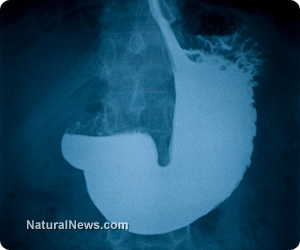Monday, May 05, 2014 by: Carolanne Wright
(NaturalNews) We may not give much thought to the 100 trillion microbes living within our guts, but new discoveries within psychiatry have found that these organisms can profoundly affect our moods. In fact, psychiatrists are now exploring the possibility of manipulating these microscopic populations with the goal of treating clinical depression and anxiety -- all without resorting to potentially harmful pharmaceutical drugs.
The mind-gut connection
The bidirectional link between the emotions and the gut is nothing new. Scientists have long known that the enteric nervous system (ENS) found within the gut is connected to the brain via the vagus nerve, and is so influential that it's often referred to as the "second brain." When we experience sadness, fear or another emotional state, the gut is affected. And yet, the reverse is also true. When imbalances within the gut are present, such as inflammation or an infection, our emotional state suffers as well.
Researchers have taken these findings a step further by examining how actual microbes within the gut alter behavior and mood. Premysl Bercik, an associate professor of gastroenterology at McMaster University, is one of the first scientists who made the leap from how microbiota impact gut function to how they shape emotions. Bercik realized that a significant portion of his patients were not only suffering from gastrointestinal maladies, but also substantial depression and anxiety.
Digging deeper, Bercik and his team discovered "mild gut inflammation caused by chronic parasitic infection... induces anxiety-like behavior in mice." The following year (in 2011) the team published research that demonstrated how gut microbes influence behavior in mice. According to the AltNet piece, "How the Microbes Living in Your Gut Might Be Making You Anxious or Depressed":
"One study compared conventional and germ-free mice, finding behavioral and brain chemistry differences between the two groups.
They began with two different types of mice, Balb/c and NIH Swiss. Balb/c mice are traditionally timid and exhibit anxiety-like behavior, whereas NIH Swiss mice are known for being daring and adventurous. In addition to differing in behavior, these types of mice also differ in the composition of their gut microbes.
The scientists raised control mice of each type as well as germ-free mice of each type. When the mice reached adulthood, they colonized some of the Balb/c germ-free mice with normal Balb/c mouse gut microbes and they colonized another group with typical NIH Swiss mouse gut microbes. They did the same with the germ-free NIH Swiss mice.
Learn more: http://www.naturalnews.co...







